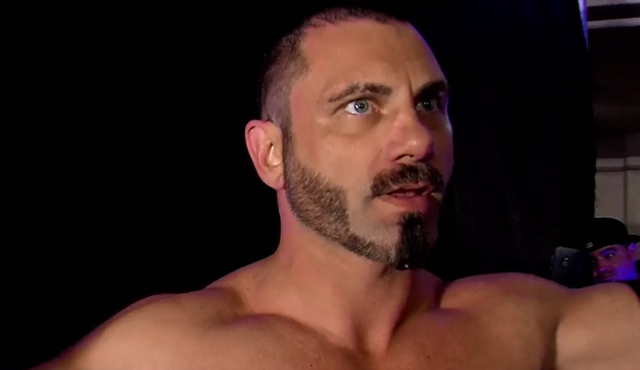wrestling / News
Austin Aries Says Being Labeled a Sexual Harasser After Christy Hemme Incident Was ‘Really Difficult’
 Image Credit: Impact Wrestling
Image Credit: Impact Wrestling
Austin Aries was a guest on Ryback’s podcast and talked about, among other things, the backlash against him after the infamous Christy Hemme incident in 2013. The incident, for those who don’t recall, saw Aries and Bobby Roode come to the ring for a tag team match and Hemme went to a corner. Aries walked up to the corner where he was intending to do his pose on the turnbuckle and instead of letting Hemme exit the corner, climbed the turnbuckle and ended up with his crotch right in Hemme’s face. Hemme said in a statement that was supposed to be posted on TNA’s website that she did not feel sexually harassed and that he apologized to her over it, adding that she had “a great deal of respect for him, in and out of this business. Even more so after all of this.”
Speaking with Ryback about the incident, Aries discussed how it took him to a dark place and he “really leaned into it” as a character. He also discussed how the business has changed for the better since the early ’00s. You can check out the highlights below:
On the industry changing from where it used to be: “You know what? Let me also put this out there — it’s changing. And that’s part of the appeal why I’m like, open to coming back. But the pro wrestling I grew up in, you know, in 2000 is a lot different than it is now. And the culture and what was accepted and — the s**t I had to navigate around not being like a lot of the people that were in positions of power? That took a toll. I’m very proud of where I got and the things that I achieved without having to kind of sell-out to that, and not really changing my moral compass.”
On the effect of the initial backlash against him over the Hemme incident: “After that incident in 2013 — Again, that on-air interaction between me and the ring announcer [Hemme] — I got classified as a sexual harasser. And that, for me, was really difficult. And I — it turned me very dark, and I really leaned into it. ‘If this is what you think of me and who I am, well then, I’ll give you that.’ Because as we know as wrestlers, the most important thing is to listen to the reaction. I don’t care if it’s good or bad, so I leaned into the bad because it was easy. But that slowly started to erode [me] personally; it takes a toll. You start to blur those lines.”







